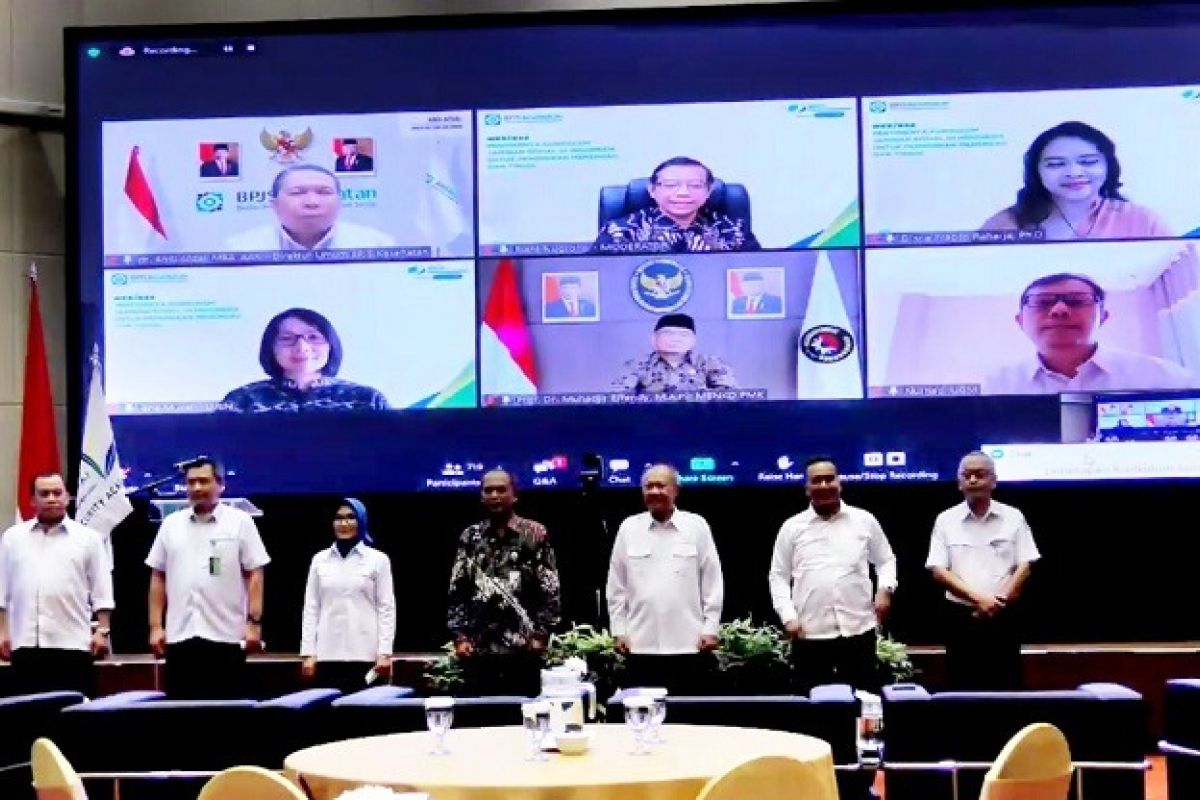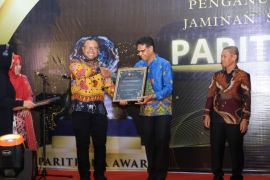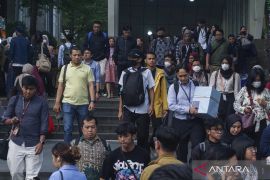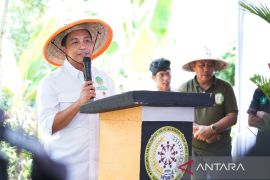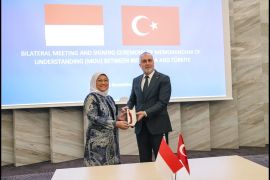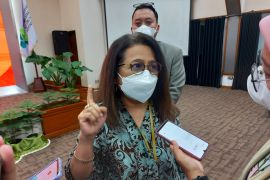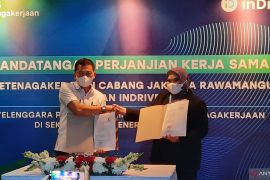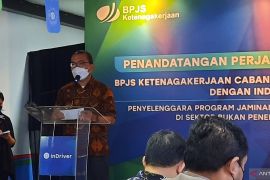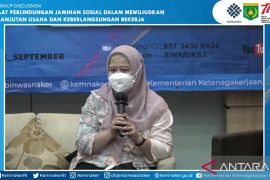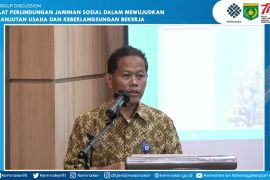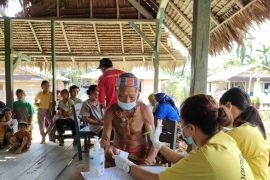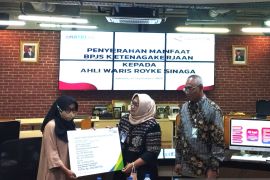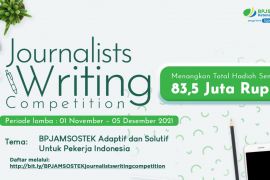The advancement of a nation depends on the effort extended in preparing the younger or future generation.
Meanwhile, the provision of social security is a part of the government's efforts to provide protection to workers (parents) from work risks such as illness, accidents, death, old age, and retirement, as well as the risk of job termination.
All of these work risks can directly affect families, particularly children as the families’ and the nation's successors.
Hence, social security is necessary so that children can stay in school and receive the best education up to the university level.
These considerations motivated the Workers Social Security Agency (BPJAMSOSTEK) along with the Healthcare and Social Security Agency (BPJS Kesehatan) and the National Social Security Council (DJSN) to organize a webinar on June 2, 2022.
The webinar on ‘The Importance of Social Security Curriculum in Indonesia for Middle and High Education,’ was held in Bogor, West Java, in commemoration of National Education Day.
The event was officially opened by Coordinating Minister for Human Development and Culture, Muhadjir Effendy, and was participated by hundreds of people from several universities in Indonesia.
During the webinar, Effendy said that the Constitution has mandated the state to develop the social security system for every citizen.
Sense of security
It is this mandate that led to the issuance of Law No. 40 of 2004 on the National Social Security System (SJSN) for ensuring basic necessities for every participant and/or their family members.
The SJSN is being implemented through two programs. The first is the National Health Insurance (JKN) program offered by BPJS Kesehatan.
The second is the manpower social insurance program offered by BPJS Ketenagakerjaan through the social insurance and saving mechanism, which is based on the principle of mutual assistance.
The implementation of the mutual assistance principle aligns with the principle of social justice for every Indonesian as well as one of the instrumental strategic values of the mental revolution national movement, Effendy said.
His ministry has highlighted that there are still many people who do not understand the importance of social security as a form of protection from risks that can befall them and their families anytime.
According to data from the Financial Services Authority (OJK), in 2019, Indonesians' literacy regarding insurance was only 19.40 percent.
Focus on dissemination
Therefore, the minister said he expects more campaign, dissemination, education, and literacy activities involving all stakeholders, including educational institutions, from the two BPJS and related ministries and institutions.
The activities must seek to cultivate the value of mutual assistance and disseminate the importance of social security to improve people's quality of life.
One of the methods to do this is including the concept of social security in teaching materials within Pancasila and Civic Education.
Echoing Effendy, State University of Jakarta's (UNJ's) Rector, Komarudin, said that the education world plays a crucial role in cultivating awareness about social security from an early stage, as part of an effort to direct Indonesia toward universal welfare.
The curriculum for social security education should be created in a way that students can understand it comprehensively as this can indirectly improve the quality of human resources and help the nation move toward the Golden Indonesia 2045 goal, he opined.
Meanwhile, BPJAMSOSTEK's general affairs and human resources director, Abdur Rahman Irsyadi, said that BPJS Ketenagakerjaan and BPJS Kesehatan need a strategy to expand social security access for students.
This can be done by tailoring the education curriculum offered at the primary, middle, and university levels so that literacy on the importance of social security can be understood comprehensively.
The presence of the state through collaboration and synergy with all stakeholders, including DJSN and ministries, is very important in formulating and synchronizing the social security system policy through educational curriculums, he noted.
"Thus, social security literacy can be included within a subject's chapter or sub-chapter from Indonesia's official education curriculum, specifically for the Civic (education) subject," he remarked.
The webinar was also expected to improve the literacy of education workers as it featured several speakers who are experts in their field.
It is expected that the development of social security literacy, starting from the level of students, can become the first step to improving the prosperity and advancement of the future human resources of Indonesia.
At a separate venue, BPJAMSOSTEK Jakarta Kelapa Gading Branch Office chief Erfan Kurniawan said that the realization of synergy between stakeholders is expected to develop people's awareness about the social security system from an early age.
By becoming opting for social security, specifically through BPJAMSOSTEK, people can be more comfortable at work, strengthen their ability to provide for their families, and allow their children to stay in school.
All of this can help realize a fair and prosperous nation that will be equal to other nations. For, this golden generation will help realize the Golden Indonesia vision when their time comes.
Related news: UI, Education Ministry cooperate to prevent bullying and violence
Related news: W Java: Hundreds of private schools ready to admit poor students
Editor: Rahmad Nasution
Copyright © ANTARA 2022
